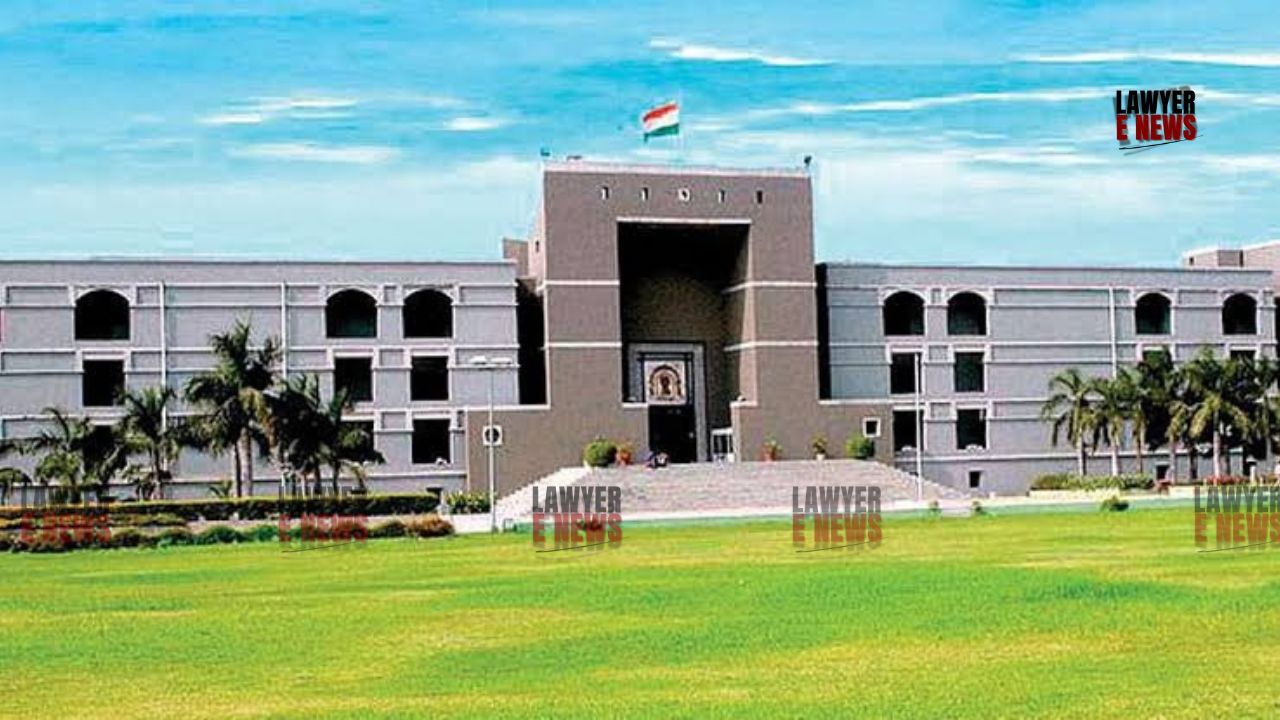-
by Admin
15 February 2026 5:01 PM



Gujarat High Court granted regular bail to Yasin Babul Mulla, who was accused under the Narcotic Drugs and Psychotropic Substances Act, 1985 (NDPS Act) for possession of 14.7 grams of Mephedrone. Justice Hasmukh D. Suthar held that since the alleged contraband constituted an intermediary quantity, the stringent conditions of Section 37 of the NDPS Act, which apply to commercial quantities, did not apply in this case.
The applicant was arrested on June 24, 2024, for possession of 14.7 grams of Mephedrone (MD), below the commercial quantity threshold of 50 grams. The police apprehended the applicant and co-accused during a patrol after the individuals allegedly attempted to flee the scene. Following his arrest, the investigation was completed, and the charge-sheet was filed. The applicant, in custody for nearly six months, sought bail on grounds that the offense did not attract Section 37's stringent conditions and that no prior criminal antecedents were attributed to him.
The prosecution opposed the bail, arguing that the contraband was seized directly from the applicant, and the nature of the offense required strict consideration.
Justice Suthar, while granting bail, reiterated the constitutional principle of personal liberty under Article 21 of the Constitution and underscored the need to balance individual freedom with public interest. The Court observed:
"The principle of bail being the rule and jail the exception must guide bail decisions. Pre-trial detention, absent compelling reasons, amounts to a violation of the right to liberty."
The Court found that the case involved an intermediary quantity of Mephedrone, making Section 37 of the NDPS Act inapplicable. It noted:
"The rigorous conditions under Section 37 do not apply here, as the alleged contraband is not of commercial quantity. The applicant’s custody is unwarranted, especially since the investigation is complete and no further recovery is required."
Citing the applicant’s clean criminal record and lack of evidence suggesting he might abscond or tamper with evidence, the Court held:
"The applicant has no prior antecedents, and the charges, even if proved, are punishable with imprisonment not exceeding ten years. Continued detention without trial would violate the applicant's fundamental rights."
Bail Conditions Imposed by the Court
Granting bail, the Court imposed stringent conditions to ensure the applicant’s compliance with the law and to safeguard the prosecution’s case. The conditions included:
Personal Bond: Execution of a bond worth Rs. 25,000 with one surety of an equivalent amount.
Surrender of Passport: The applicant must surrender his passport to the trial court.
Travel Restrictions: Prohibition on leaving the state of Gujarat without prior court permission.
Monthly Reporting: The applicant is required to mark his presence at the local police station once a month for six months.No Illegal Activities: The applicant is restrained from engaging in any illegal activities or offenses.
Provide Details: Furnishing updated residence and contact details to the trial court, with an obligation to notify the court of any changes.
The Court warned that any breach of these conditions would empower the trial court to cancel the bail and issue a warrant.
Referring to landmark decisions, including Sanjay Chandra v. CBI ([2012] 1 SCC 40) and Mohd. Muslim alias Hussain v. State (NCT of Delhi) (2023 SCC OnLine SC 352), the Court underscored the principle that:
"Prolonged incarceration before trial serves no purpose and amounts to pre-trial punishment."
The Court emphasized that trials in NDPS Act cases often take considerable time to conclude and stated:
"Continued custody would violate the applicant’s right to liberty under Article 21 of the Constitution. Denial of bail must be an exception, not the rule, especially when the investigation is complete, and no substantial risk exists."
The Gujarat High Court granted bail, noting that keeping the applicant in custody served no judicial purpose. While granting liberty to the trial court to cancel the bail upon non-compliance with conditions, the Court clarified that the observations made in the bail order would not influence the trial.
Date of Judgment: December 10, 2024
